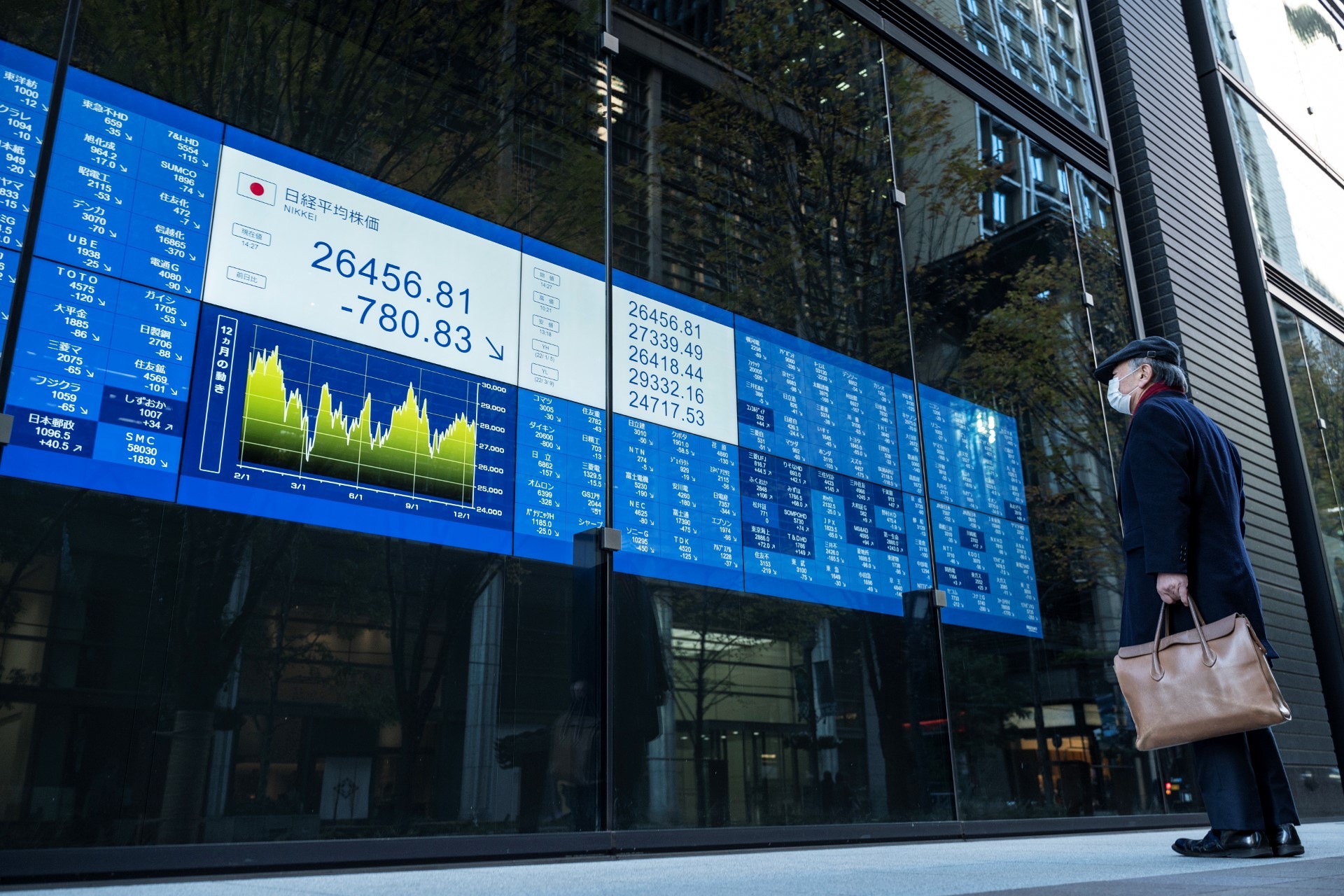Asian markets extended a Wall Street advance into Thursday as forecast-busting US earnings and consumer confidence data tempered worries about a deep recession.
With dust settling after the Bank of Japan’s surprise shift from ultra-loose monetary policy, investors embarked on a mini Santa rally ahead of the Christmas break, while the yen stabilized following its biggest jump in 24 years.
The global gains came after hefty selling since the Federal Reserve and European Central Bank last week signalled they would likely lift interest rates higher than expected to fight decades-high inflation.
Investors, looking for some good news, pounced on a survey showing consumer confidence in the US economy jumped in December more than estimated — to the highest since April — as inflation showed signs of easing and energy prices cooled.
That came along with better-than-expected earnings from Nike and delivery giant FedEx.
Nike, which has been hit by supply-chain snarls, also provided a shot in the arm for the future by saying the most difficult supply excesses were “behind us” and that inventories were at their lowest levels in four quarters.
All three main indexes on Wall Street ended more than one percent higher, while European equities also barrelled along.
“The economy is still headed towards a recession, but the consumer continues to show signs of resilience which could delay a significant tumble for equities,” said OANDA’s Edward Moya in a note.
Asia continued the party into Thursday.
Hong Kong led the way, rising more than two percent, with tech firms tracking their US counterparts up and property stocks boosted by comments from top Chinese officials pledging support for the beleaguered sector.
Tokyo, Shanghai, Sydney, Seoul, Singapore, Taipei, Wellington and Manila were also well up.
Stephen Innes at SPI Asset Management, added: “The favourable results also come at a significant (juncture) for the economy — when investors are seeking signs that the US is either headed into a recession or the Fed is successfully engineering a soft landing.
“The market is coming around to the notion that we will have a more orthodox 2023, including a much more balanced Fed that is looking to slow the pace of hikes amid better news on inflation.”
Oil prices also rose again, extending Wednesday’s gains of more than two percent, in reaction to data showing US stockpiles fell last week leaving inventories at their lowest levels in eight years, according to Bloomberg News.
The pick-up in crude has also been helped by China’s economic reopening after almost three years of a zero-Covid policy of lockdowns and mass testing.
